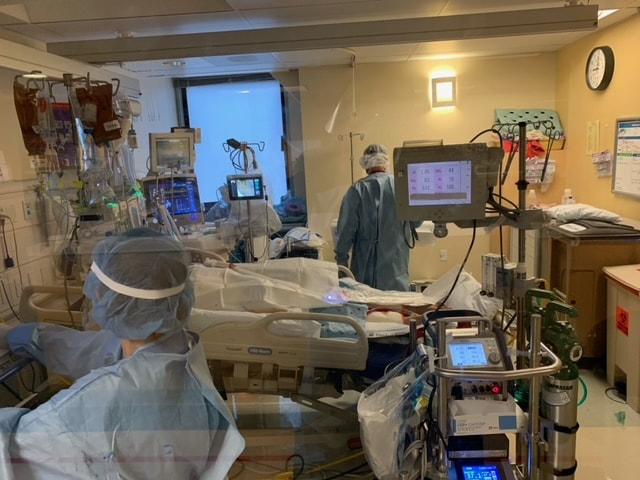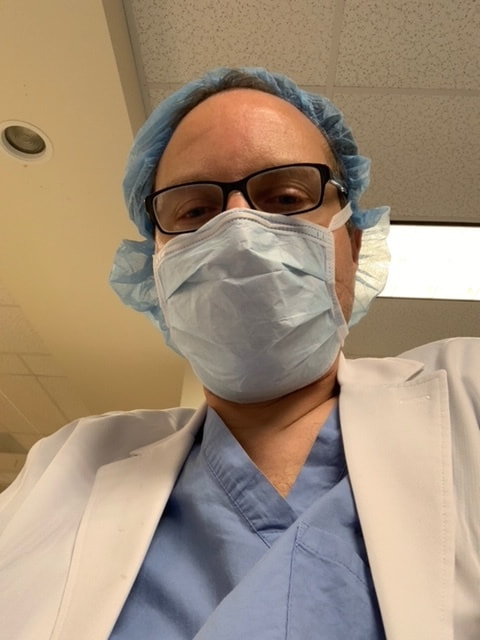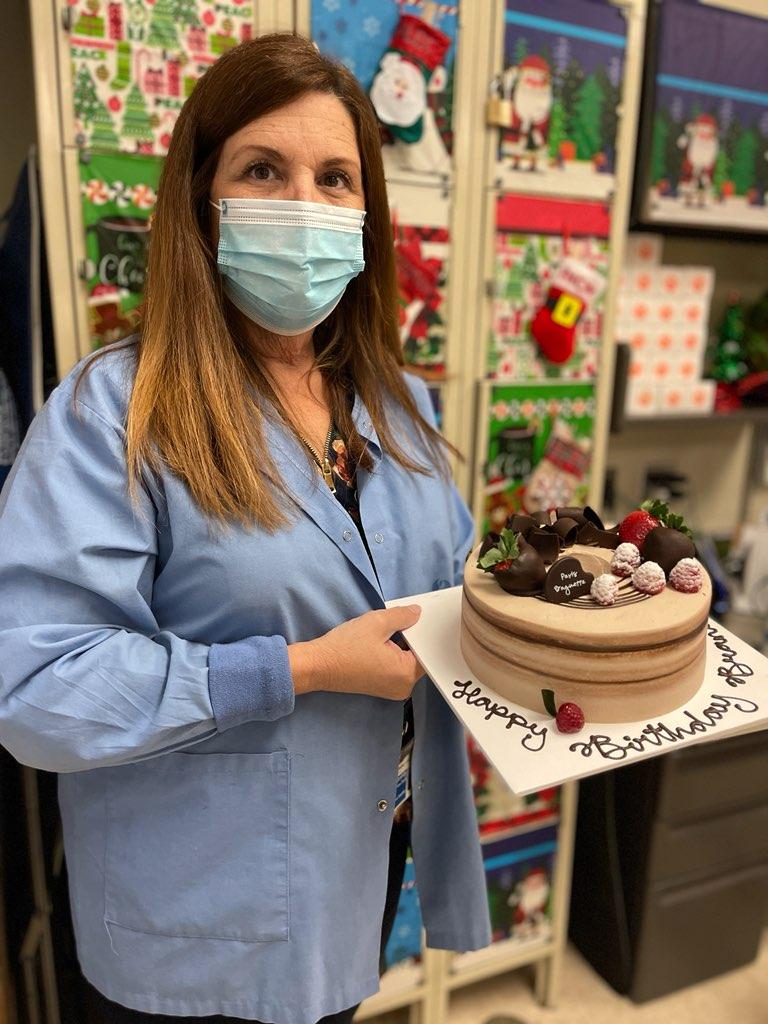One year ago today, HHS students received an email stating that schools were going to be closed for the next three weeks. Thoughts of having an unexpected yet not wholly unwelcome break during arguably the most stressful month of school was an enticing idea to students. With promises to meet up over the break and unsaid goodbyes, students left campus for the last time in a long time. Little did they know, those three weeks would quickly turn into more than a year. For students, that meant more than a year of Zoom meetings and limited social interaction. Though, for other parts of our community, the past year had a different reality entirely. Small businesses, frontline medical workers and essential workers have all experienced the frightening and gruesome effects of the coronavirus firsthand. Now, a year later, the coronavirus’s impact can be felt through various parts of our community. This project covers stories from students and other community members and how they were affected by the pandemic through conversations about different experiences they’ve gone through in the past year.
COVID-19 disrupts student lives, brings reflection
By Shreya Partha, Leila Salam and Saanvi Thakur
Additional reporting by Madhavi Karthik, Lia Klebanov and Ritaja Subrahmanya
Additional reporting by Madhavi Karthik, Lia Klebanov and Ritaja Subrahmanya
The abrupt ending to in-person learning one year ago left many students confused about what the future would hold while others, like senior Hannah McGoran, were excited about the extended break from school during a stressful time in the school year.
“I was overwhelmed at the time because I think I had a lot of tests going on and I thought [the three weeks off] was some sort of break,” McGoran said. “I went from shocked and believing it would actually be nice to have a break to not knowing how bad [COVID-19] would be.”
However, this extended period away from school, paired with the devastating number of deaths caused by the coronavirus, has provided students with time to reflect and focus more on gratitude, McGoran said.
“I've just come to realize how many things I need to be consciously grateful for,” McGoran said, “because, obviously, when so much gets taken away, you realize, ‘I shouldn't have been taking all these things for granted.’”
Indhu Chandra (11) said she has similar feelings about the importance of being grateful during the pandemic.
“I have learned to appreciate the small things, like getting the chance to go outside because I can't really do that as often now,” she said.
Another major change the pandemic brought is limiting freshmen to an all-virtual transition and introduction to high school. The academic culture of HHS is hard to grasp as freshmen have not been able to understand and experience it for themselves, freshman Anushruti Nagarajan said.
“Socially, entering a classroom and not knowing that many faces was definitely a challenge, because I’m coming from a school where I practically knew everyone,” Nagarajan said. “Now, I’m entering high school where more than three fourths of the school is completely unknown.”
Additionally, the learning experience this year has been completely virtual, which limits freshmen’s ability to understand the campus, the routine of being in person and where to go to access important resources on campus, Nagarajan said.
“Because it's such a big campus, it might be intimidating to come back and get into that whole high school setting,” Nagarajan said. “We'll be just as new as the incoming freshmen next year.”
While freshmen have lost out on the experience of entering high school, seniors have lost the in-person experiences of their final year of high school.
“This is probably the last time I’ll be seeing a lot of people and so it would have been nice to be able to spend this last year with them before we each go on our own separate journeys,” senior Faith Dominique said. “It would have also been nice to have senior activities, like senior prom, especially since we missed out on [prom] during our junior year.”
Similar to Dominique, McGoran said she feels disappointed with the lack of senior experiences caused by the virtual learning environment.
“It's really a bummer to be missing out on a lot of senior year because a lot of adults you hear say that's the main year of their K-12 education. So it's like ‘Wow! like we might not have those memories to like look back on,’” McGoran said. “But then it's not within our control, and things just happen. I think for me [what’s important is] just making the most of what I have and trying to have memories from there.”
While some students were hit hardest by the impact the pandemic had on their education, others are focused on how it has impacted their families.
For freshman Allison Harris, this means taking extra precautions as her dad, an ICU pulmonary critical care physician at Kaiser Permanente, had started working longer shifts to regulate the increasing number of coronavirus cases.
“Because [my dad] is in healthcare, he sees what happens to people when they contract bad cases of the coronavirus. We've been a little bit more paranoid about what we can and can't do,” Harris said. “I definitely feel a bit more stressed than probably the average person because we're getting exposed a lot more. But, I also feel safer because we're being cautious and he's gotten vaccinated so it's given us a little sense of relief.”
With the introduction of the vaccine, sophomore Elise Vambenepe, who volunteered to be a part of a vaccine trial, said she feels the vaccine will aid in a return to normalcy.
“Joining the vaccine trial seemed like a great opportunity to help out my community,” Vambenepe said. “I think it's a really great opportunity to be part of something that has to do with bringing us back to normal.”
However, though healthcare workers may be around people who have the coronavirus, it is a different situation altogether when a family member is infected. This is the reality for sophomore Shreya Sriram, whose relatives in India were diagnosed with the coronavirus.
“The feeling of helplessness starts to settle in because [my family] is so far away from me so I can't do anything to help them,” Sriram said. “I fully understood the risk because when someone you know gets COVID-19, it just amplifies [the situation] and I [realized], ‘this is way more real than I thought it was’.”
While all student’s lives have been impacted differently, there’s a continued sense of appreciation and importance placed on being grateful during these difficult times, McGoran said.
“I've thought about just how fragile life is,” McGoran said. “My perspective on life has also changed because I've heard so much about death during the pandemic, so that's been a wake up call for me because we're lucky to be alive.”
“I was overwhelmed at the time because I think I had a lot of tests going on and I thought [the three weeks off] was some sort of break,” McGoran said. “I went from shocked and believing it would actually be nice to have a break to not knowing how bad [COVID-19] would be.”
However, this extended period away from school, paired with the devastating number of deaths caused by the coronavirus, has provided students with time to reflect and focus more on gratitude, McGoran said.
“I've just come to realize how many things I need to be consciously grateful for,” McGoran said, “because, obviously, when so much gets taken away, you realize, ‘I shouldn't have been taking all these things for granted.’”
Indhu Chandra (11) said she has similar feelings about the importance of being grateful during the pandemic.
“I have learned to appreciate the small things, like getting the chance to go outside because I can't really do that as often now,” she said.
Another major change the pandemic brought is limiting freshmen to an all-virtual transition and introduction to high school. The academic culture of HHS is hard to grasp as freshmen have not been able to understand and experience it for themselves, freshman Anushruti Nagarajan said.
“Socially, entering a classroom and not knowing that many faces was definitely a challenge, because I’m coming from a school where I practically knew everyone,” Nagarajan said. “Now, I’m entering high school where more than three fourths of the school is completely unknown.”
Additionally, the learning experience this year has been completely virtual, which limits freshmen’s ability to understand the campus, the routine of being in person and where to go to access important resources on campus, Nagarajan said.
“Because it's such a big campus, it might be intimidating to come back and get into that whole high school setting,” Nagarajan said. “We'll be just as new as the incoming freshmen next year.”
While freshmen have lost out on the experience of entering high school, seniors have lost the in-person experiences of their final year of high school.
“This is probably the last time I’ll be seeing a lot of people and so it would have been nice to be able to spend this last year with them before we each go on our own separate journeys,” senior Faith Dominique said. “It would have also been nice to have senior activities, like senior prom, especially since we missed out on [prom] during our junior year.”
Similar to Dominique, McGoran said she feels disappointed with the lack of senior experiences caused by the virtual learning environment.
“It's really a bummer to be missing out on a lot of senior year because a lot of adults you hear say that's the main year of their K-12 education. So it's like ‘Wow! like we might not have those memories to like look back on,’” McGoran said. “But then it's not within our control, and things just happen. I think for me [what’s important is] just making the most of what I have and trying to have memories from there.”
While some students were hit hardest by the impact the pandemic had on their education, others are focused on how it has impacted their families.
For freshman Allison Harris, this means taking extra precautions as her dad, an ICU pulmonary critical care physician at Kaiser Permanente, had started working longer shifts to regulate the increasing number of coronavirus cases.
“Because [my dad] is in healthcare, he sees what happens to people when they contract bad cases of the coronavirus. We've been a little bit more paranoid about what we can and can't do,” Harris said. “I definitely feel a bit more stressed than probably the average person because we're getting exposed a lot more. But, I also feel safer because we're being cautious and he's gotten vaccinated so it's given us a little sense of relief.”
With the introduction of the vaccine, sophomore Elise Vambenepe, who volunteered to be a part of a vaccine trial, said she feels the vaccine will aid in a return to normalcy.
“Joining the vaccine trial seemed like a great opportunity to help out my community,” Vambenepe said. “I think it's a really great opportunity to be part of something that has to do with bringing us back to normal.”
However, though healthcare workers may be around people who have the coronavirus, it is a different situation altogether when a family member is infected. This is the reality for sophomore Shreya Sriram, whose relatives in India were diagnosed with the coronavirus.
“The feeling of helplessness starts to settle in because [my family] is so far away from me so I can't do anything to help them,” Sriram said. “I fully understood the risk because when someone you know gets COVID-19, it just amplifies [the situation] and I [realized], ‘this is way more real than I thought it was’.”
While all student’s lives have been impacted differently, there’s a continued sense of appreciation and importance placed on being grateful during these difficult times, McGoran said.
“I've thought about just how fragile life is,” McGoran said. “My perspective on life has also changed because I've heard so much about death during the pandemic, so that's been a wake up call for me because we're lucky to be alive.”
Learn more about how other community members have been affected by COVID-19
The Epitaph Instagram Facebook Twitter
© 2021 Editorial Policy: All articles published in the Opinion section, with the exception of the Staff Editorial, do not reflect the opinions of the Editorial Board or any staff member other than the author. The Epitaph encourages readers to express their thoughts and concerns by sending a Letter to the Editor. However, The Epitaph discourages harassment of writers, verbal or written, as well as any actions disrupting students, staff or community members from reading the paper. Directions for sending a Letter to the Editor can be found on the Contact Us page. The Epitaph welcomes all Letters to the Editor and reserves the right to edit, shorten or not publish any submissions without notice.



